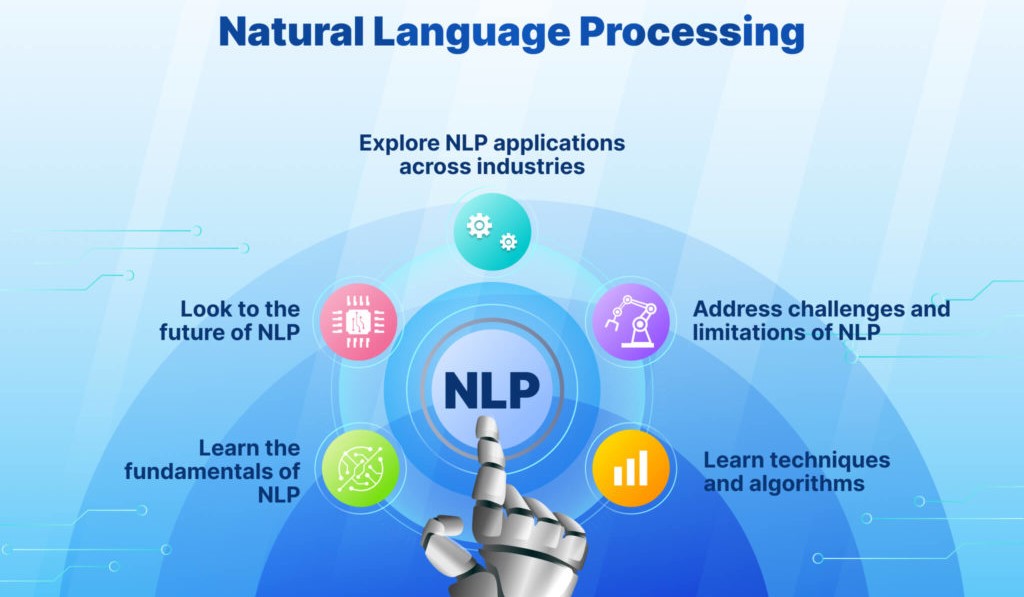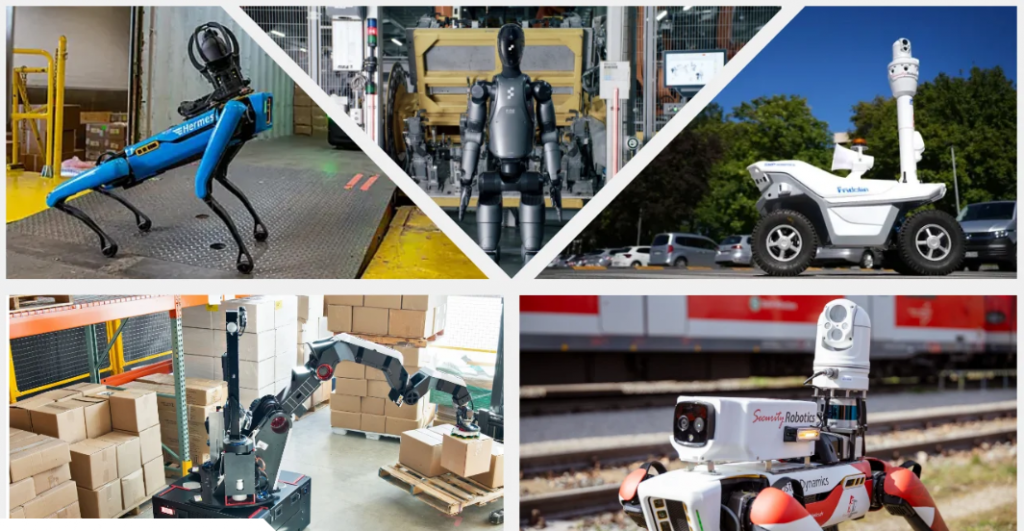Artificial intelligence (AI) is no longer a futuristic concept relegated to science fiction. It’s rapidly transforming industries, societies, and our daily lives. This pervasive influence has created a fertile ground for academic exploration, making the realm of AI a particularly compelling area for doctoral research. Choosing the right dissertation topic about AI is crucial, and the possibilities, at times, can feel overwhelming.
This article aims to navigate that landscape, providing insights into diverse areas that can form the foundation of a compelling and impactful dissertation. We will delve into emerging trends and persistent challenges, offering a guide for aspiring researchers seeking to contribute to this ever-evolving field.
Why AI is a Rich Subject for Doctoral Research
The allure of AI as a research area stems from its multidisciplinary nature. It draws from computer science, mathematics, cognitive psychology, neuroscience, and even philosophy. This interdisciplinary characteristic allows for a broad range of research approaches. Furthermore, AI is facing a period of rapid development, with new models, techniques, and applications emerging constantly. This dynamism means there's a consistent need for deep analysis, critical assessment, and innovative solutions. A well-researched dissertation topic about AI can significantly contribute to the understanding and progression of the field, offering tangible benefits to society.
Areas of Focus for Dissertation Topics about AI
Here's a breakdown of specific areas within AI that could spark innovative dissertation topic about AI choices:
1. Machine Learning and Deep Learning Advancements
- Novel Architectures and Algorithms:
- Research on creating more efficient, explainable, and robust neural network architectures.
- Developing new algorithms for unsupervised, semi-supervised, and reinforcement learning.
- Exploring the potential of quantum machine learning algorithms.
- Explainable AI (XAI):
- Focus on developing methods to understand and interpret the decisions made by complex AI models.
- Investigating the application of XAI techniques in high-stakes decision-making systems.
- Analyzing the trade-off between model accuracy and interpretability.
- Federated Learning:
- Examining the security and privacy aspects of federated learning.
- Developing efficient techniques for training models on distributed data without data sharing.
- Exploring new applications of federated learning in diverse domains.
A research focused on dissertation topic about AI within this area has the potential to transform how we understand and interact with AI systems.
2. Natural Language Processing (NLP) and Understanding
- Advanced Language Modeling:
- Investigating the limitations of current large language models (LLMs) like GPT and exploring avenues for improvement.
- Developing more efficient methods for training and deploying LLMs.
- Focusing on ethical and societal implications of LLMs, such as bias and misuse.
- Cross-lingual and Multilingual Processing:
- Developing robust NLP models that can handle multiple languages effectively.
- Addressing the challenges of low-resource languages in NLP.
- Exploring machine translation techniques that go beyond literal translations, capturing nuances and context.
- Dialogue Systems and Conversational AI:
- Improving the naturalness and coherence of conversations with AI agents.
- Developing AI assistants that can understand and respond to user needs in a more human-like way.
- Focusing on sentiment analysis, intent recognition, and context understanding in dialogue systems.

Choosing a dissertation topic about AI in NLP can lead to solutions that greatly impact human-computer communication and understanding.
3. Computer Vision and Image Analysis
- Object Recognition and Scene Understanding:
- Developing more robust object recognition models that are resilient to variations in lighting, perspective, and occlusions.
- Focusing on deep learning methods for scene understanding, including depth estimation and semantic segmentation.
- Exploring the potential of using computer vision for autonomous driving and robotics.
- Image and Video Generation:
- Researching new techniques for generating realistic and high-quality images and videos.
- Investigating the ethical implications of synthetic media and deep fakes.
- Exploring creative applications of generative models in areas such as art and design.
- Medical Image Analysis:
- Developing AI-powered diagnostic tools for various diseases using medical images.
- Exploring the potential of AI to improve the accuracy and efficiency of medical imaging analysis.
- Addressing the ethical considerations of AI in medical image analysis.
Focusing on a dissertation topic about AI in computer vision could revolutionize industries that rely on visual processing, from healthcare to surveillance.
4. Robotics and Autonomous Systems
- Human-Robot Interaction:
- Developing robots that can understand and respond to human intent and behavior.
- Improving the safety and trust in human-robot collaboration.
- Exploring ethical issues surrounding the integration of robots into human society.
- Reinforcement Learning in Robotics:
- Developing reinforcement learning algorithms for robotic control and navigation.
- Focusing on challenges such as reward shaping, exploration, and sample efficiency in robot learning.
- Exploring the potential of robot learning in complex, real-world environments.
- Multi-Robot Systems:
- Developing algorithms for coordination and communication in multi-robot systems.
- Addressing the challenges of distributed sensing and control in multi-agent settings.
- Exploring new applications of multi-robot systems in areas such as search and rescue.

A dissertation topic about AI focused on robotics can lead to developments that fundamentally alter our interactions with machines and transform industries.
5. AI Ethics, Fairness, and Societal Impact
- Bias Detection and Mitigation:
- Developing methods for detecting and mitigating biases in AI models.
- Investigating the sources of bias in training data and algorithms.
- Exploring techniques for ensuring fairness and equity in AI decision-making systems.
- AI Governance and Policy:
- Examining the legal and regulatory implications of AI technology.
- Developing ethical guidelines and standards for the responsible development and deployment of AI.
- Exploring the societal impact of AI on employment, education, and healthcare.
- Privacy-Preserving AI:
- Developing AI techniques that protect sensitive user data and ensure privacy.
- Exploring the potential of technologies such as differential privacy and homomorphic encryption for privacy-preserving machine learning.
- Addressing the challenges of balancing privacy and accuracy in AI systems.
An increasingly vital area is the ethical implications. A dissertation topic about AI in this area is paramount as AI becomes more embedded in our daily lives.
6. AI in Specialized Domains
- AI in Healthcare:
- Developing AI-powered tools for disease diagnosis, treatment planning, and drug discovery.
- Exploring the potential of AI to improve the efficiency and quality of healthcare delivery.
- Focusing on the ethical and regulatory considerations of AI in healthcare.
- AI in Finance:
- Developing AI-based systems for fraud detection, risk management, and algorithmic trading.
- Exploring the ethical and societal implications of AI in financial markets.
- Focusing on AI for personal finance and financial inclusion.
- AI in Education:
- Developing AI-powered personalized learning platforms and tools.
- Exploring the potential of AI to improve access to education and learning outcomes.
- Addressing the ethical challenges of AI in education, such as bias and privacy concerns.
Each of these specialized areas presents a rich tapestry for research. Selecting a dissertation topic about AI within a specific domain can lead to targeted solutions with real-world impact.
Choosing Your Dissertation Topic About AI
The selection process requires careful consideration. Here are some crucial steps:
- Identify Your Interests: Begin by identifying the areas of AI that genuinely excite and engage you.
- Explore the Literature: Conduct a thorough literature review to understand current research trends and identify gaps in knowledge.
- Consider Practical Relevance: Think about the potential impact of your research and its relevance to real-world problems.
- Refine Your Focus: Narrow your focus to a manageable scope that can be completed within the timeframe of a doctoral program.
- Consult Your Advisor: Work closely with your advisor to develop a research proposal that aligns with your interests and the department's resources.
Embarking on research for a dissertation topic about AI is not just about selecting an area of focus; it's about diving deep into a transformative technology and making a contribution that shapes the future. By selecting a focused area and conducting rigorous research, aspiring scholars can significantly contribute to the ongoing evolution of AI. The future of AI is bright, and there are countless possibilities for innovative research within this ground-breaking field. It's about finding your niche, asking the right questions, and diligently pursuing the answers.
Get Professional Dissertation Writing Service
Are you looking for help with writing a dissertation about Artificial Intelligence? Then, engage the experts at Exemplary Dissertations. We help students to write original and top notch dissertations for undergraduate, graduate and post graduate courses. Our writers can assist you to choose a compelling dissertation topic about AI and write the dissertation to the best standards. Our writing services also cater for research papers, essays and case studies.